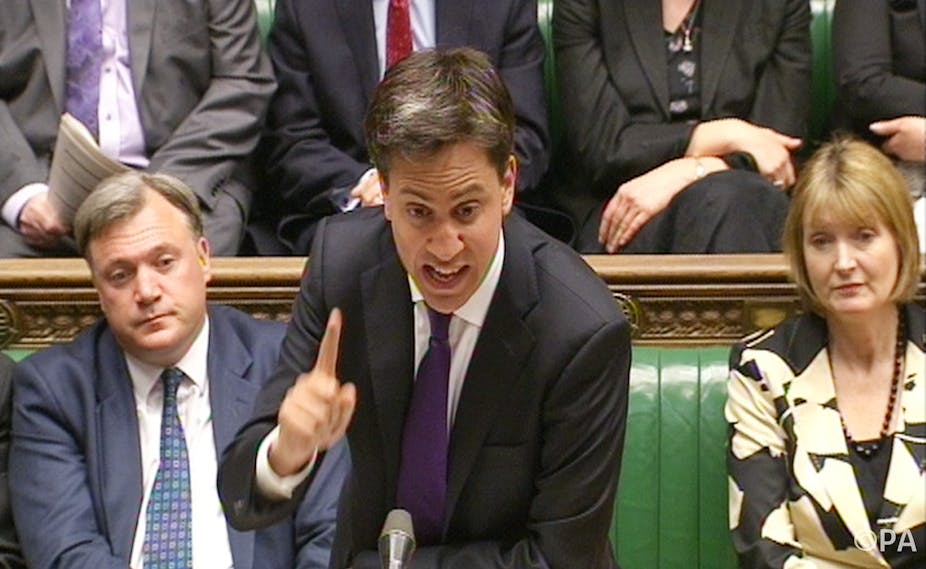It appears the spectre of Falkirk will not go away for Ed Miliband. Despite claiming he has acted decisively by suspending the selection process, Miliband has failed to publish the Labour report about the vote-rigging allegations. To add to his travails, Tom Watson, his general election co-ordinator, has jumped ship (again).
Watson’s last resignation resulted in Tony Blair standing down as prime minister; he’s in danger of becoming the albatross around Labour’s neck. His (US) “Independence Day” resignation letter makes interesting reading. Claims of remaining a “loyal servant” and words of encouragement - “you have it in you to be an outstanding Labour prime minister” - simply don’t square with the decision to quit now.
Shortly after Watson’s resignation, Miliband came under fire from Len McCluskey of Unite who accused him of a smear campaign by Labour and an attempt to “stitch-up” the union. On Thursday, McCluskey was uncompromising in his condemnation of the Labour leader, saying he had lost faith; a stark turnaround from his previous day’s position when he said that Ed Miliband had his full support.

This is undoubtedly the greatest challenge that Miliband has faced since becoming leader and how he handles the situation will determine how long he stays in his post. It may not be very long before there is a leadership contest given the discontent among others in the party. If that happens I could see Alan Johnson, Ed Balls and Yvette Cooper all throwing their hats into the ring. And my money would be on Alan Johnson becoming the next Labour leader as he has the cabinet experience and the ability to restore seriousness to politics.
The root cause of the current conflict between Unite and Labour is one of ideological disunity; Unite is very much on the left whereas Labour has moved increasingly to the political centre in order to attract votes. Ed Miliband and Len McCluskey find themselves in the horns of a dilemma. The parliamentary Labour Party knows that pandering to the demands of McCluskey, Unite, and other increasingly vociferous, even militant, unions will lose them the next general election. For McCluskey, there seems little point in doling out money to Labour from Unite’s hefty political fund to support the party, either centrally or by sponsoring individual MPs, without getting anything in return.
Threats of withdrawing financial support for Labour are unlikely to be taken very seriously by the party and McCluskey will know this. It is this frustration that has driven Unite in its attempt to return Labour to the working classes, albeit by allegedly dubious means.
During his time as a union activist and leader McCluskey has seem union membership decline to almost half of what it was in 1979 and he knows that much of that decline is due to the demise of high density blue-collar industry. With aggregate union membership standing at around 7 million, the unions know they have less political clout these days. Unite is in a privileged position with Labour as it around represents around 20% of all union members, so potentially it has more political influence than the other unions – if only Labour would listen.
Not only is Miliband under pressure from the unions, he is also criticised by some of the “wise men” of the party; the interventions of Peter Mandelson and David Blunkett entreating him to stand up to the unions is not what Miliband wants to hear. Len McCluskey doesn’t want to hear it either for, if Miliband does as he’s being told, it could signal the end of the special relationship between the trade unions and the Labour Party which has lasted for more than a century. A very worrying thought for all union leaders.
Inevitably, the Conservatives have seized the opportunity to snipe at Miliband and McCluskey. Conservative Party Chairman Grant Shapps has already embraced 1970s rhetoric and labelling McCluskey a “union baron”. David Cameron mentioned McCluskey’s name eight times during prime minister’s questions yesterday .
One thing is certain, unless Ed Miliband and Len McCluskey can resolve their differences soon, they will both be cast into the political wilderness come the next general election. The one thing that will unite them then will be reflecting on lost opportunities.

